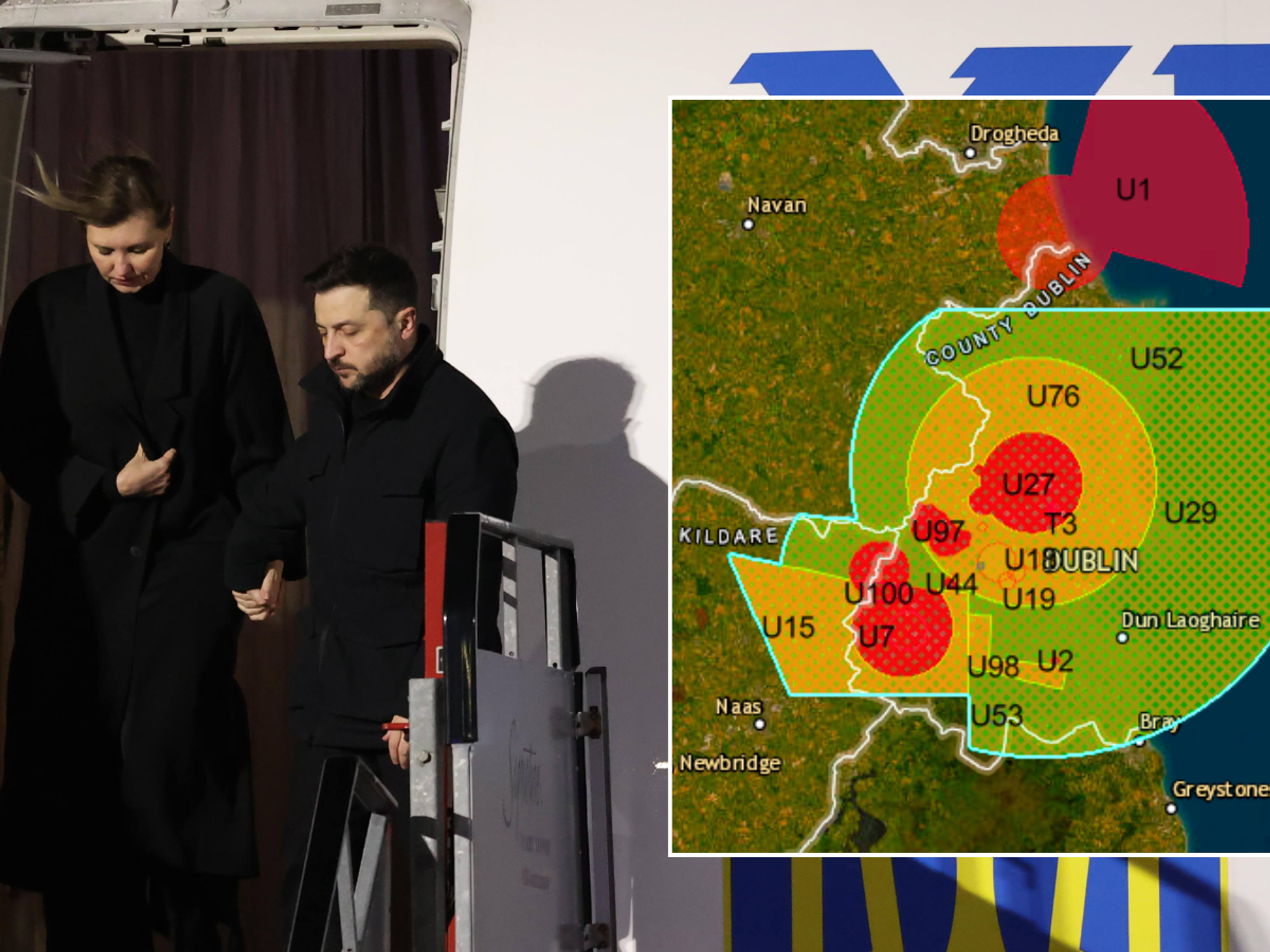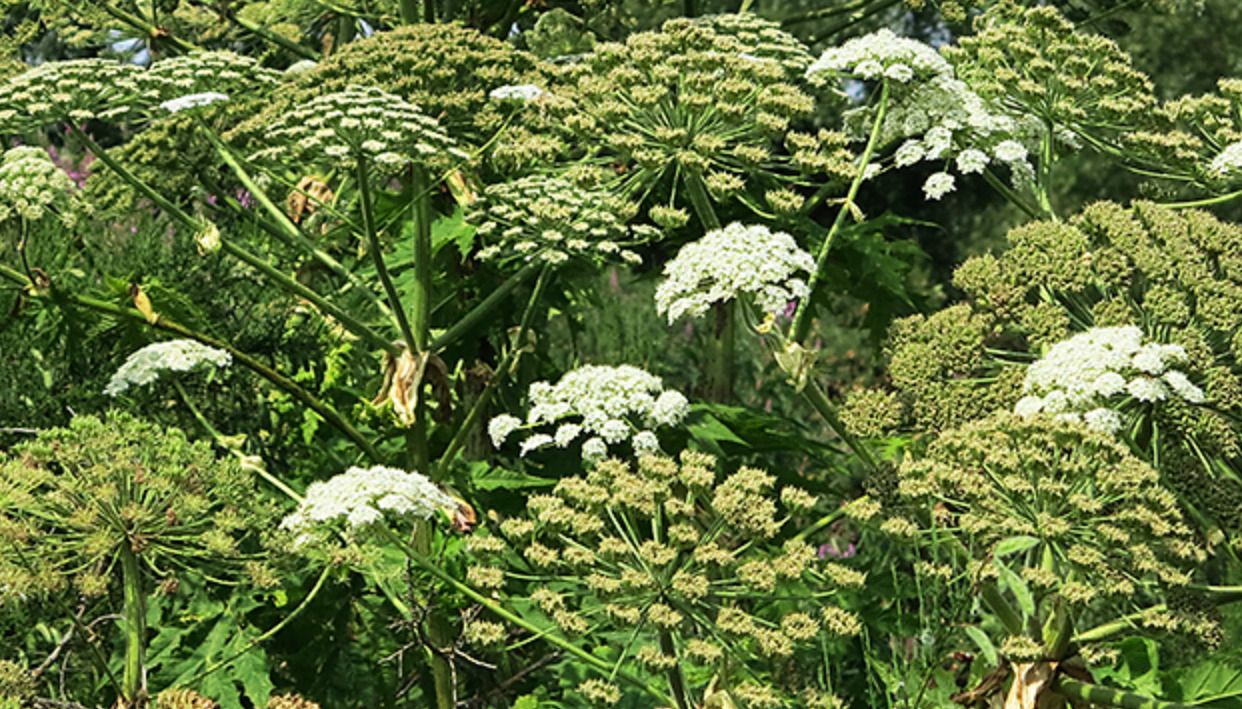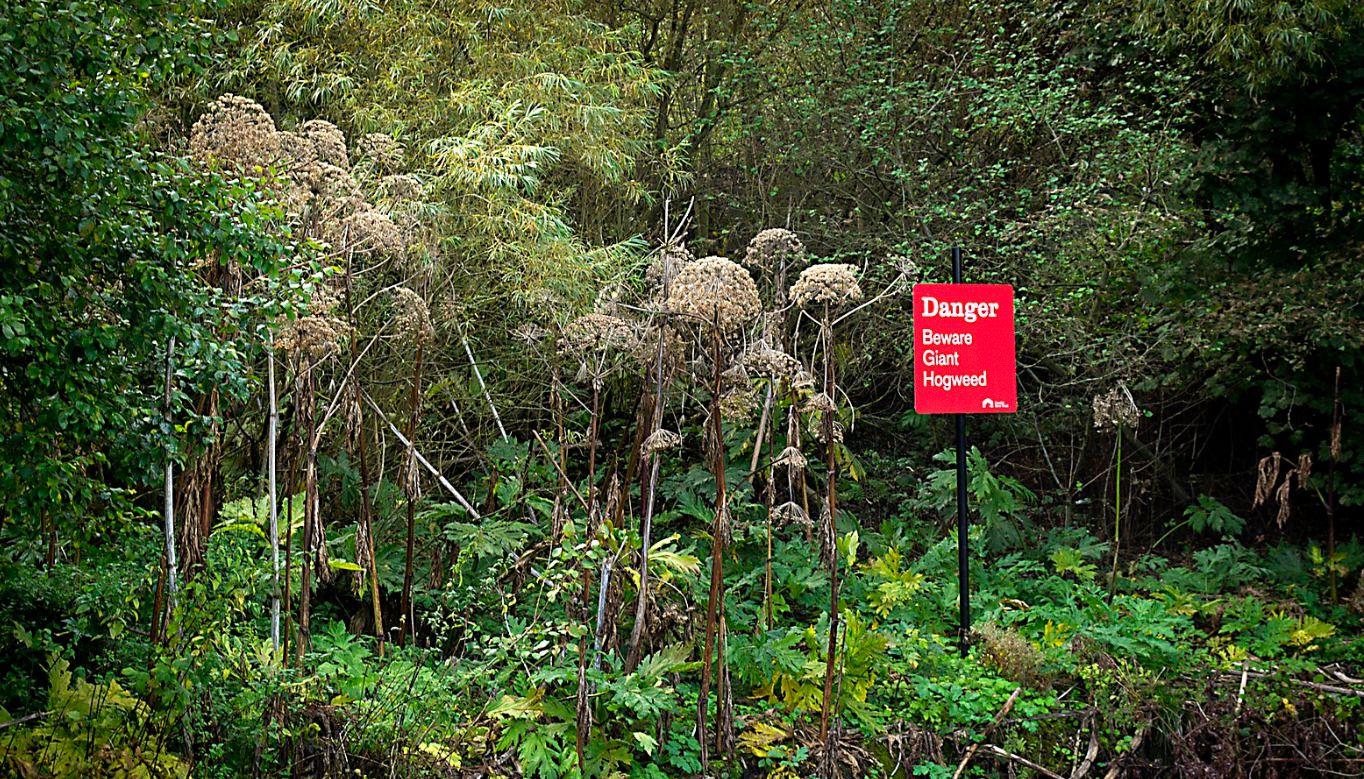Dog dies after being stung by UK's 'most dangerous plant' on walk with owner
Staffordshire Bull Terrier Ella sustained fatal blistering from the plant
Don't Miss
Most Read
A dog owner has been left heartbroken following the tragic death of his beloved Staffordshire Bull Terrier, after it died after being stung by a poisonous plant.
Following a dog walk with a friend in Port Sunlight River Park in the Wirral, 61-year-old Stuart Good said his dog Ella scrambled out of the undergrowth screeching in pain.
Upon arriving home, Mr Good noticed a blister "the size of a pound coin" under the Staffordshire Bull Terrier's leg, which continued to expand in size.
Friend Clive Ransom drove Ella and her owner to a vet in Birkenhead where they were informed her injuries were inflicted by giant hogweed.
The plant is dubbed as "Britain's most dangerous plant" and can cause painful blistering and skin irritation if touched by a human.
Giant hogweed
Wiki Commons
Giant hogweed can cause burns to humans and animals
Wiki Commons
Since the incident, Ella's owner and Mr Ransom have take to social media urging other dog owners to keep their animals on a lead and stick to paths when on walks.
Mr Ransom told the Liverpool Echo: "She went in the undergrowth and let out a little yelp. She shot out as if something had spooked her and let out a little yelp.
"We carried on the walk and then I went back to my place, Stuart went back to his place, then he phoned me up and said 'I've just seen a blister on Ella and she's trying to scratch it'.
"She came out of the bushes yelping, we didn't know what it was and she had a little blister about the size of a £1 coin under her front leg and that then developed.
"The next day it was double the size and the next day it was double the size again. I said 'right that's it' because Stuart doesn't drive I took him to the vets.
"That was when they said three days later - 'that's definitely giant hogweed, we can prescribe pain killers but there's no cure for this. We're just going to have to wait - you'll know when the time is right, and that's when the pain becomes too much for Ella and we have to say goodbye'."
Giant hogweed is an huge weed, similar in looks to the cow parsley plant, known to cause burns to animals and humans.
The sap is one of the most prominent parts of the plant, with its thick green stem having patches of purple and white hairs on it. If the sap gets onto your skin and it's then exposed to the sun, it can cause huge blisters which can then recur over months and even years.
In the weeks following the incident, Mr Ransom said the blister continued to grow "to the point where it was half of her side as one great big open wound. It was that bad it was weeping and bleeding.
"Stuart had to throw his bedding away. He loved the dog so much he had her in bed with him to keep her comfortable. It was devastating for him."
Commenting on the tragic death of Ella, a Land Trust spokesman said: "The Land Trust has been made aware of an unfortunate incident involving a dog and has reached out to the individual for more information. We are not aware of any Giant Hogweed, which can be dangerous, at Port Sunlight River Park.
"We do have Common Hogweed which is a common native plant and is often confused for Giant Hogweed - which is a non-native invasive species. Common Hogweed does not cause any issues to the public or their pets and can often be found in our parks in meadows, woodland, along hedgerows, verges and roadsides.
"Health and safety at our parks is extremely important to the Land Trust. Our rangers do regular, scheduled checks and maintenance to keep our parks safe for visitors. This includes mowing grassed areas adjacent to the paths keeping them short for visitors and their pet.
"We also have signs on site that state dog owners should keep their dogs on a lead and stick to the paths to help preserve ground nesting birds and to be respectful of the site and other visitors. Our site ranger is generally on site Monday – Friday and will continue to do regular health and safety checks of the park, along with our volunteers, and also speaking to any visitors about their concerns.
"If members of the public have anything they would like to discuss with our ranger, please email mail@thelandtrust.org.uk and one of our team can help."













